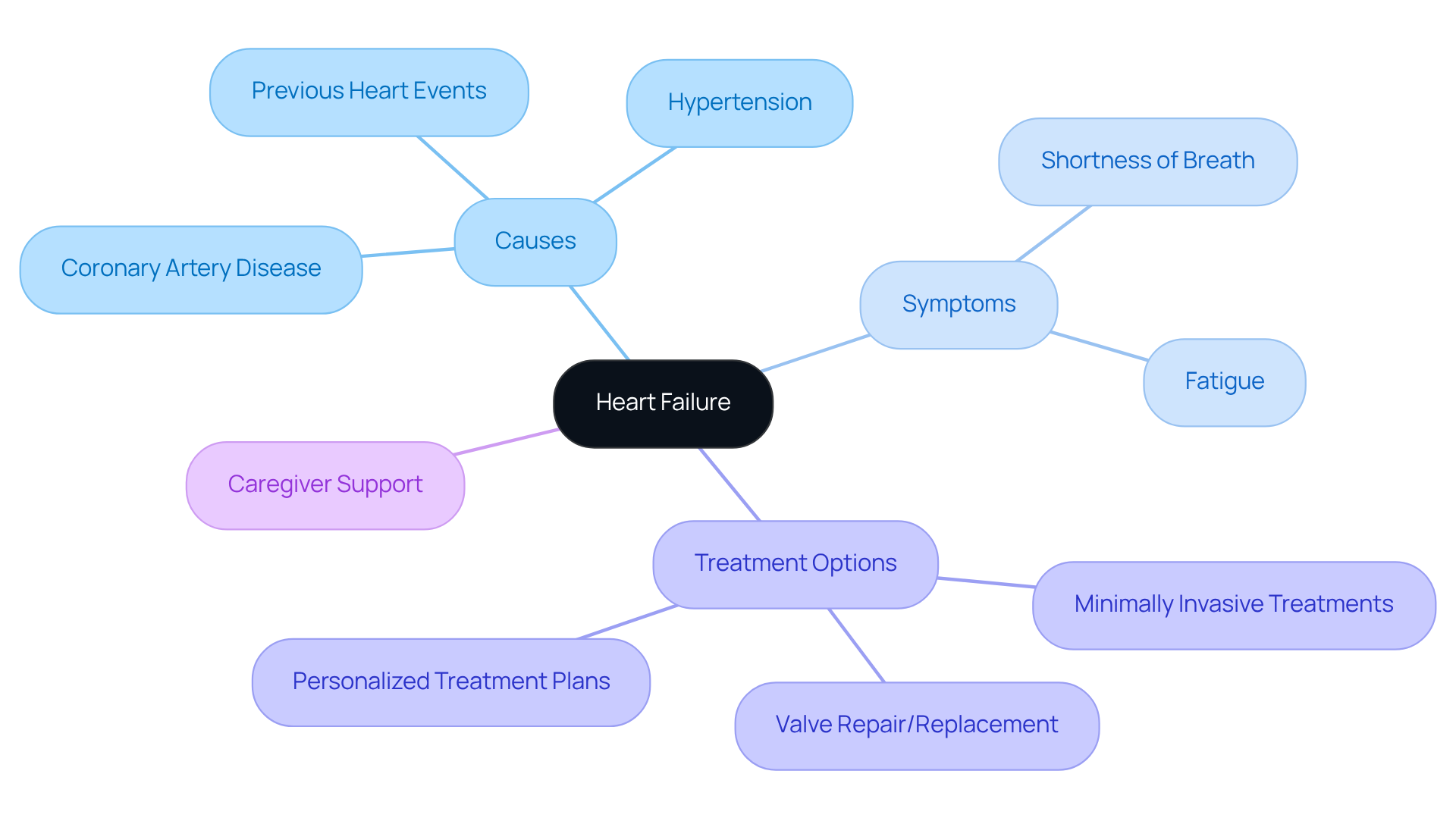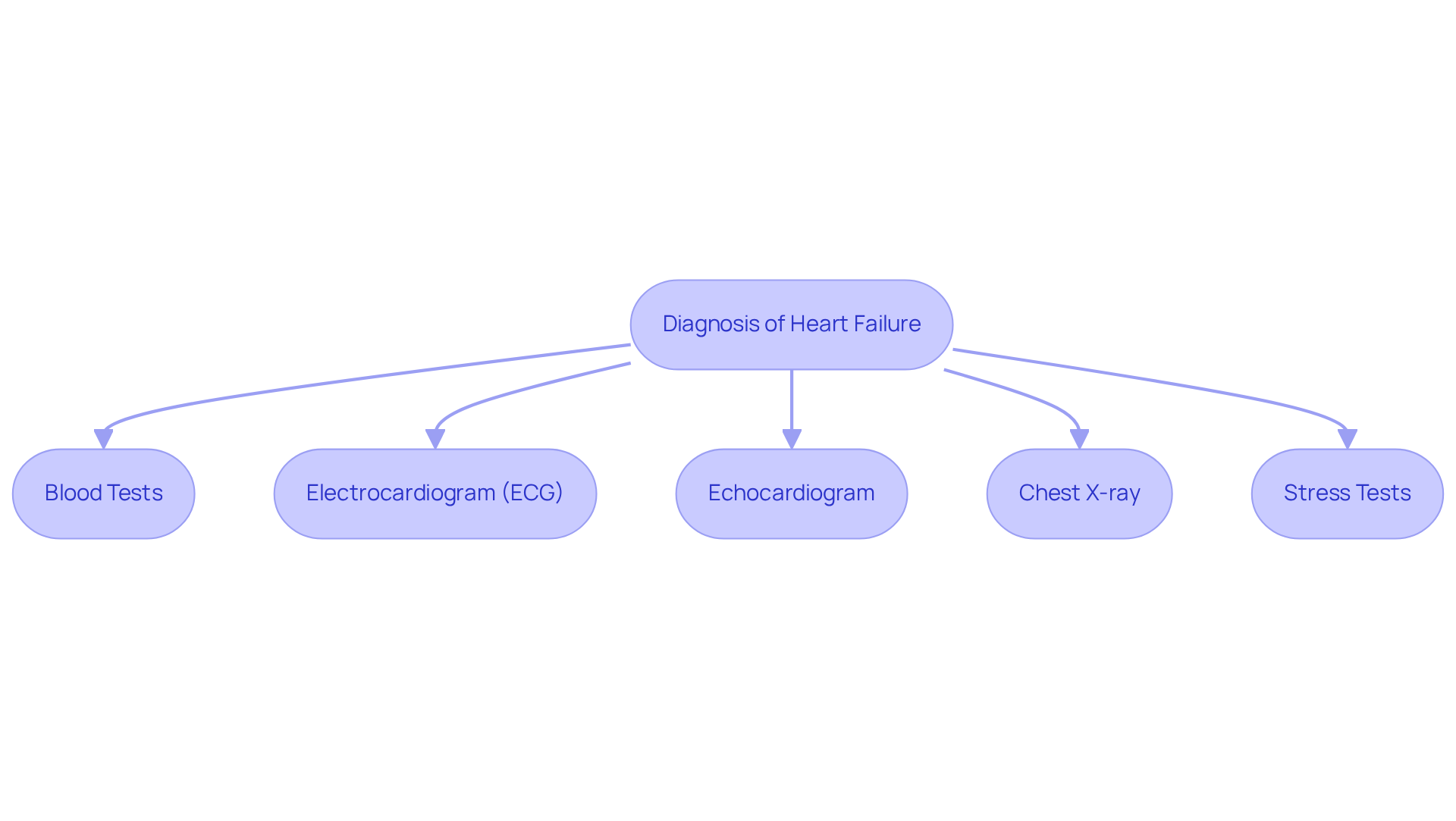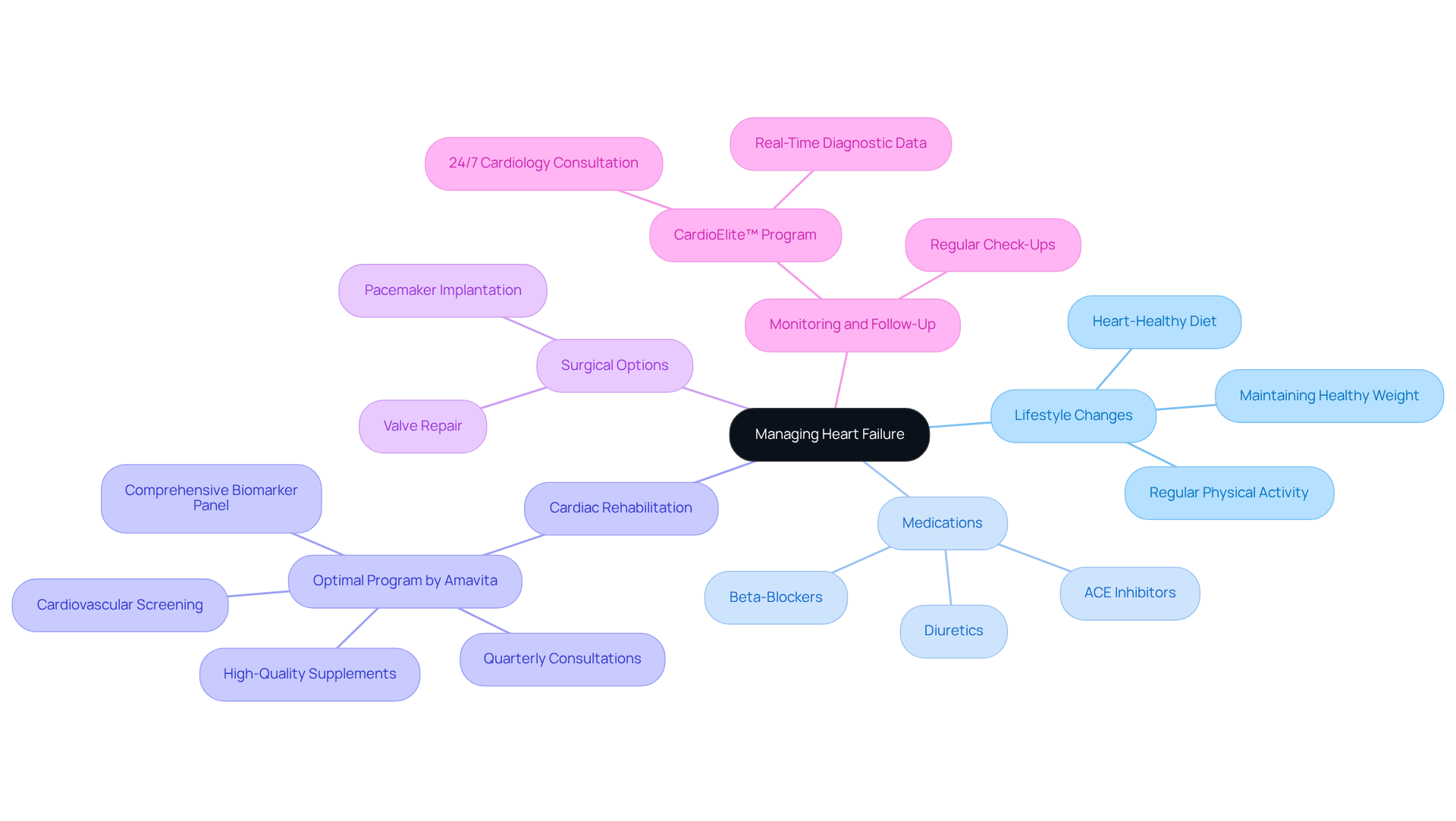


This article aims to provide caregivers with a compassionate and comprehensive understanding of heart failure. It covers essential aspects such as the definition, symptoms, diagnosis, and treatment options available. Recognizing symptoms is crucial, and caregivers are encouraged to utilize diagnostic tests. Furthermore, exploring various management strategies can significantly enhance the quality of life for those affected. By equipping caregivers with this vital knowledge, we empower them to support patients effectively, fostering a nurturing environment that addresses both the emotional and physical needs of individuals facing heart failure.
Heart failure affects millions, and yet its complexities often remain misunderstood. This condition, characterized by the heart's inability to pump blood efficiently, can arise from various underlying issues. These challenges lead to symptoms that significantly impact daily life. Caregivers are crucial in recognizing these signs and navigating the treatment landscape, which includes:
How can caregivers equip themselves with the knowledge and tools necessary to support those facing this challenging journey towards better heart health? Together, we can explore ways to enhance understanding and provide the compassionate care that is so vital.
Cardiac dysfunction, often known as congestive cardiac dysfunction (CHF), is a complex condition where the heart struggles to pump blood effectively, failing to meet the body's needs for oxygen and nutrients. This challenge can arise from various issues, such as coronary artery disease, hypertension, or previous heart events. It's important to recognize that cardiac failure does not mean the heart has stopped working; rather, it is a progressive condition that can lead to serious complications if not managed with care.
As the heart may become weak or rigid, fluid can accumulate in the lungs and other parts of the body, leading to symptoms like shortness of breath and fatigue. These symptoms could indicate underlying cardiac valve disease, where the heart valves do not function properly, forcing the heart to work harder. At Amavita Heart and Vascular Health, we are dedicated to providing minimally invasive treatments that can repair or replace damaged valves, significantly enhancing breathing and energy levels, often allowing for same-day discharge.
Understanding these aspects is crucial for caregivers, as it enables them to offer the right support and care for those affected. Our comprehensive cardiac assessments can identify the specific causes of fatigue and shortness of breath, allowing us to create personalized treatment plans aimed at restoring heart function and improving overall well-being. If you or a loved one is experiencing these symptoms, we encourage you to reach out for support. Together, we can navigate this journey towards better heart health.

Common symptoms of heart failure can be concerning, but understanding them is the first step toward better health. Here are some signs to watch for:
Shortness of Breath: You might notice this during physical activity or even while lying down, and it often worsens at night. Early detection through advanced imaging can help uncover any underlying issues contributing to this symptom, providing you with peace of mind.
Fatigue: Feeling unusually tired or weak, even after rest, can be frustrating. With the help of AI-driven diagnostics, we can gain insights into your cardiac function, which can significantly assist in managing your fatigue.
Swelling: Fluid retention can lead to swelling in your legs, ankles, and abdomen. At Amavita, our comprehensive evaluations can help monitor and effectively address fluid retention, ensuring you feel more comfortable.
Rapid or Irregular Heartbeat: Palpitations or a racing heart can be alarming. By incorporating advanced evaluations, we ensure these signs are properly assessed and managed, allowing you to feel more secure.
Coughing or Wheezing: This may occur due to fluid buildup in the lungs. Early imaging can help identify the cause of any respiratory issues, providing clarity and direction for your care.
Increased Need to Urinate at Night: This can disrupt your sleep and indicate fluid retention. Understanding how your organs function in this context can lead to more effective treatment strategies, helping you rest easier.
Recognizing these signs early, supported by Amavita's cutting-edge AI technology and AHA-certified framework, can greatly influence how we manage cardiac issues together. You are not alone in this journey; we are here to support you every step of the way.

Diagnosing heart failure is a crucial step in ensuring your health and well-being. It typically involves a thoughtful combination of your medical history, a physical examination, and various diagnostic tests that help us understand your heart's condition better.
Understanding these diagnostic methods can be reassuring. It empowers caregivers to support you through the evaluation process and advocate for your health needs. Remember, you are not alone in this journey; we are here to help you every step of the way.

Managing cardiac failure effectively involves a compassionate approach that combines lifestyle changes, medications, and, when necessary, surgical interventions. It's important to understand the available treatment options, which can significantly improve your quality of life.
By familiarizing yourself with these treatment options and the supportive programs available through Amavita, such as the Optimal Program and CardioElite™, you can feel empowered in your journey to manage heart failure hands effectively. Remember, you are not alone in this; caregivers play a crucial role in supporting you, ultimately contributing to better long-term health outcomes. How can we assist you further on this path to wellness?

Heart failure is a multifaceted condition that requires a thorough understanding for effective management and support. This article has provided a comprehensive overview of heart failure, detailing its definition, symptoms, diagnostic methods, and treatment options. Recognizing that heart failure is not simply a cessation of heart function but a progressive challenge that affects daily life is crucial for caregivers and those impacted by the condition.
Key points discussed include:
Ultimately, understanding heart failure is vital not only for those diagnosed but also for their caregivers. By fostering awareness and encouraging proactive management, individuals can navigate the complexities of heart failure with confidence. Engaging with healthcare providers and utilizing available resources, such as those offered by Amavita, can lead to improved health outcomes and a better quality of life. Remember, the journey towards better heart health is a collaborative effort—together, we can make a significant impact.
What is heart failure?
Heart failure, also known as congestive cardiac dysfunction (CHF), is a condition where the heart struggles to pump blood effectively, failing to meet the body's needs for oxygen and nutrients.
What causes heart failure?
Heart failure can arise from various issues, including coronary artery disease, hypertension, or previous heart events.
Does heart failure mean the heart has stopped working?
No, heart failure does not mean the heart has stopped working; it is a progressive condition that can lead to serious complications if not managed properly.
What are the symptoms of heart failure?
Symptoms of heart failure can include shortness of breath and fatigue, which may indicate underlying issues such as cardiac valve disease.
What is cardiac valve disease?
Cardiac valve disease occurs when the heart valves do not function properly, forcing the heart to work harder, which can contribute to heart failure symptoms.
How can heart failure be treated?
Treatments for heart failure may include minimally invasive procedures to repair or replace damaged heart valves, which can significantly enhance breathing and energy levels.
What is the approach of Amavita Heart and Vascular Health towards heart failure treatment?
Amavita Heart and Vascular Health focuses on providing minimally invasive treatments that can improve heart function and often allow for same-day discharge.
Why is it important for caregivers to understand heart failure?
Understanding heart failure is crucial for caregivers as it enables them to provide the right support and care for those affected.
How can one get support for heart failure symptoms?
If you or a loved one is experiencing symptoms like fatigue and shortness of breath, it is encouraged to reach out for support to navigate towards better heart health.